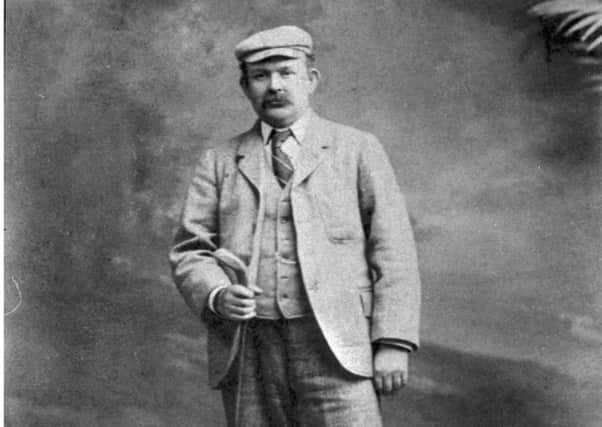Scots among Olympic golf's pioneers


Then, as now, the build up to the Games was clouded in controversy. Currently, the headline issue concerns the Zika virus which has caused a number of top male golfers to withdraw, raising questions about the integrity of the competition and the sport’s place in the Olympics. In 1900, there were major organisational issues preceding the Games. The Games’ founder, Baron de Coubertin, had persuaded Paris to host them but only as part of the World Fair taking place there. The Fair did not want its prominence to be diluted in any way by the “upstart” Games, leading to much organisational infighting. As a result, some of the events, including golf, were described as “International Championships”, instead of Olympic contests. Due to the piecemeal nature of the organisation, the Games were spread over five months at different venues scattered in and around Paris. The golf was staged at Compiegne, a town 30 miles north which boasted a course reputedly one of Europe’s best. Set partly within a horse racing track, it had been established in 1896.
In August 1900, intimation appeared in a golf magazine that, in connection with the Paris World Fair, an important competition was to be held by the Society of Sport of Compiegne. Entrants were instructed to send their handicaps with their ten franc fee via their club secretary to the organisers. Three different events were to take place: men’s scratch and handicap and ladies’ scratch. On 2 October, the first of the 12 entrants from France, Great Britain and US teed off in the men’s premier competition, 36 holes in one day. The winner was America’s Charles Sands, of the St Andrews Club, New Jersey, founded by Scots in 1888. He totalled 167 strokes, closely followed by Rutherford one behind, with Robertson further back on 175. While by today’s standards these scores seem poor, they were achieved with inferior equipment and balls.
Advertisement
Hide AdAdvertisement
Hide AdSands, an accomplished all-round sportsman, had a good pedigree as finalist in the US Amateur of 1895. The outcome attracted hardly any publicity with very little being written about it, in stark contrast to the modern day. It is noteworthy that, shortly after, a contemporary press report of Rutherford’s success in the Borders’ golf championship is silent on his Olympic feat.
Rutherford was the son of a well-known Borders farming family from Crailing, where he was born in 1857. Having initially attended the local school, he went to Madras College, St Andrews, as a boarder, where he took advantage of opportunities to play more golf. Thereafter, he spent 1873-74 at St Andrews’ University’s United College studying English, Latin and Greek after which he returned to farming at Crailing.
Prior to the Olympics, he was a well-known figure on the Borders golfing scene, at one stage playing off a plus-5 handicap, and it is possible that, by 1900, he was past his peak. He was the first president of the Borders Golf Association, winning their championship several times, and club champion at Hawick and Jedburgh, captaining both clubs. He played against some of the top names of the day, including the legendary Freddie Tait at North Berwick, John Ball Jr, multiple British amateur and Open champion on the Isle of Man, and James Braid in an exhibition match at Berwick.
Away from the links, he had a strong social conscience and was heavily involved in his local community. Politically active as a Liberal,he was office bearer in numerous agricultural bodies, a Justice of the Peace who sat regularly on the bench, a councillor and school board member as well as being a leading figure in Madras College former pupils’ association. His untimely death in 1913 from diabetic complications was a devastating blow to many.
Robertson was born in Shawlands in 1869, the son of a wine merchant.He attended Haileybury Prep School in Hertfordshire before going to Glasgow Academy. In 1889, he began studying at Christ’s College Cambridge where he graduated BA in 1893, thereafter being called to the Bar at Lincoln’s Inn.
Better known as a winger on the rugby field, he won his “blue” in the Varsity match against Oxford in 1892 and the next year was capped for Scotland against Wales. He died in 1937 at Idstone, Berkshire.
At Compiegne, the ladies were restricted to nine holes. In Rio, Catriona Matthew will at least have an increased opportunity to emulate her countrymen.
The men’s competition is from 11–14 August; women’s 17–20 August.